Viral Karen Video Breakdowns: Entitlement and Social Justice Explained
Category: Social Issues
Understanding Viral Karen Videos and Their Social Impact
If you’ve ever come across a viral Karen video, you know the mix of disbelief, frustration, and sometimes dark humor they evoke. As a socially conscious reader, you’re likely here to unpack what fuels this cultural phenomenon—not just for laughs, but to critique the entitlement and disruptive behaviors that these videos expose. You’ve spent time seeing clips where a ‘Karen’ demands special treatment or stirs up conflict, often spotlighting deeper social injustices. Your pain point is understanding why these moments spiral into public outrage and what they reveal about entitlement and systemic unfairness. This post takes a nuanced look, breaking down viral Karen videos through the lenses of social justice, entitlement, and cultural commentary. Unlike typical compilations or reaction pieces, here we delve into the patterns behind the outrage, the psychology of entitlement, and the broader implications for social equity. By the end, you’ll not only get a comprehensive breakdown of these viral episodes but also a sharper insight into the societal dynamics they reflect, empowering you to engage with the topic more critically and informatively.
- Understanding Viral Karen Videos and Their Social Impact
- What Defines a ‘Karen’? Origins and Cultural Context
- Anatomy of Viral Karen Videos – Common Triggers, Behaviors Exhibited, and What Makes These Videos Spread Rapidly Online
- Psychology of Entitlement – Understanding the Underlying Attitudes and Mindset Driving ‘Karen’ Behaviors in Public Settings
- Social Justice and Karen Encounters – How These Videos Intersect with Issues of Race, Privilege, and Inequality
- Breaking Down Notable Viral Karen Videos – Case Studies and Detailed Analysis
- Public and Social Media Reactions – Examining Community Responses, Viral Discourse, and the Role of Outrage Culture
- Impacts on Businesses and Public Spaces – How Karen Incidents Disrupt Environments and Influence Policies or Reputation
- Legal and Ethical Considerations – When Entitlement Crosses into Harassment or Hate, and Societal Responses
- Lessons for Conflict Management and Cultural Awareness – What We Can Learn About De-escalation and Empathy from These Viral Moments
- Future of the ‘Karen’ Phenomenon – Potential Changes in Public Perception and Social Accountability Moving Forward
What Defines a ‘Karen’? Origins and Cultural Context
The term ‘Karen’ has evolved far beyond just a popular internet meme; it has become a powerful cultural archetype symbolizing a specific brand of entitlement and social disruption. Originally, ‘Karen’ emerged in online communities as a shorthand to describe a middle-aged white woman exhibiting privileged, demanding, and often aggressive behavior, especially when interacting with service workers or minorities. While the exact etymology is unclear, some trace its viral rise to humorous skits and forums in the mid-2010s, where characters named Karen were portrayed as overly entitled or unreasonable.
Over time, the meaning of ‘Karen’ expanded—reflecting not just irritating behavior but systemic issues tied to racial and social privilege. The archetype became associated with those who weaponize entitlement to demand unwarranted authority, often to the detriment of marginalized groups. Consequently, the ‘Karen’ meme serves as a social critique, spotlighting everyday injustices that might otherwise go unchallenged. This evolution reflects a broader cultural conversation about accountability, power dynamics, and the consequences of unchecked privilege.
Key Characteristics That Define a ‘Karen’
- Entitlement and Special Treatment: Insisting on privileges or exceptions beyond what others receive.
- Confrontational and Disruptive Behavior: Engaging in public disputes, often aggressively.
- Racial and Social Privilege: Leveraging societal advantages to intimidate or silence marginalized voices.
- Resistance to Accountability: Refusing to acknowledge wrongdoing or the negative impact of their actions.
- Performative Victimhood: Framing themselves as victims when called out, to deflect criticism.
Understanding the cultural context behind the ‘Karen’ phenomenon is critical for interpreting viral videos not simply as isolated incidents, but as reflections of deeper societal patterns. This lens helps expose how individual entitlement is intertwined with broader systems of injustice, making these viral moments a valuable subject for social analysis rather than mere entertainment.

Image courtesy of Marcus Aurelius
Anatomy of Viral Karen Videos – Common Triggers, Behaviors Exhibited, and What Makes These Videos Spread Rapidly Online
Viral Karen videos follow a surprisingly consistent blueprint that fuels their rapid spread and amplifies their impact as social commentaries on entitlement and injustice. Common triggers often include scenarios where a Karen perceives a slight to her comfort, authority, or expectations of special treatment. Typical flashpoints involve disputes over mask mandates, customer service disagreements, or confrontations in public spaces like stores, parks, or restaurants—settings where everyday social interactions can quickly escalate when entitlement clashes with rules or marginalized voices.
The behaviors exhibited are typically marked by:
- Loud verbal confrontations that show little regard for social norms or empathy.
- Demanding to “speak to the manager” or authority figures, asserting a misplaced sense of power.
- Disregard for rules or policies, often framed as personal attacks or discriminatory acts against themselves.
- Selective outrage and performative victimhood, where the Karen positions herself as the aggrieved party despite being the instigator.
- Use of racial or class privilege to intimidate or silence service workers and others who challenge her.
What makes these videos spread rapidly online ties directly to their ability to evoke strong emotional responses. The combination of shock, outrage, and schadenfreude makes viewers eager to share, comment, and debate. Social media algorithms further amplify this by promoting content that generates high engagement, especially when videos showcase clear examples of unjust entitlement or disruptive behavior. Additionally, these clips become cultural flashpoints—sparking conversations about systemic privilege, workplace dynamics, and social accountability—giving them a relevance that transcends mere entertainment.
By dissecting these common elements, it becomes clear that viral Karen videos do more than just capture outrageous moments; they serve as digital mirrors reflecting entitlement-driven social dysfunction, making them powerful tools for recognizing and challenging the unfair dynamics embedded in everyday interactions.

Image courtesy of Mikhail Nilov
Psychology of Entitlement – Understanding the Underlying Attitudes and Mindset Driving ‘Karen’ Behaviors in Public Settings
At the core of many viral Karen videos lies a complex psychology of entitlement—a mindset rooted in unrealistic expectations of privilege, control, and deference from others. This entitlement is not merely about personal rudeness or poor manners but reflects deeper cognitive and emotional patterns that shape how these individuals perceive their social environment. Psychologists describe entitlement as a persistent belief in one’s inherent deservingness of special treatment and exemptions from rules, often accompanied by a lack of empathy for those affected by their behavior.
Several psychological factors contribute to the classic ‘Karen’ persona:
- Narcissistic Traits: An inflated sense of self-importance leads to perceiving normal social rules as unfair constraints.
- White Privilege and Social Dominance: Many Karen behaviors are reinforced by systemic power imbalances where societal structures implicitly endorse their demands.
- Threat Perception and Defensive Responses: When challenged, a Karen often exhibits defensive aggression, viewing accountability as a personal attack rather than social responsibility.
- Lack of Emotional Regulation: In many viral clips, the abrupt escalation of outrage reveals difficulties managing frustration or disappointment in socially constructive ways.
- Performative Victimhood as a Coping Mechanism: By framing themselves as victims, Karens deflect criticism and maintain control over the narrative, further entrenching their sense of entitlement.
This psychological framework explains why Karen behaviors tend to be so disruptive and resistant to correction. These individuals don't just act out of momentary frustration but operate from a worldview that places their interests and desires above communal norms or fairness. Understanding these underlying attitudes helps decode why viral Karen episodes feel so jarring and why they evoke such widespread social condemnation—they expose how unchecked entitlement perpetuates unequal power dynamics that marginalize others.
Recognizing the psychology behind Karen behavior is crucial not only for making sense of specific viral videos but also for addressing the broader cultural conditions that enable entitlement-driven injustice. By shining a light on these mental and emotional patterns, we can foster more effective strategies for holding entitlement accountable and promoting social equity in everyday interactions.
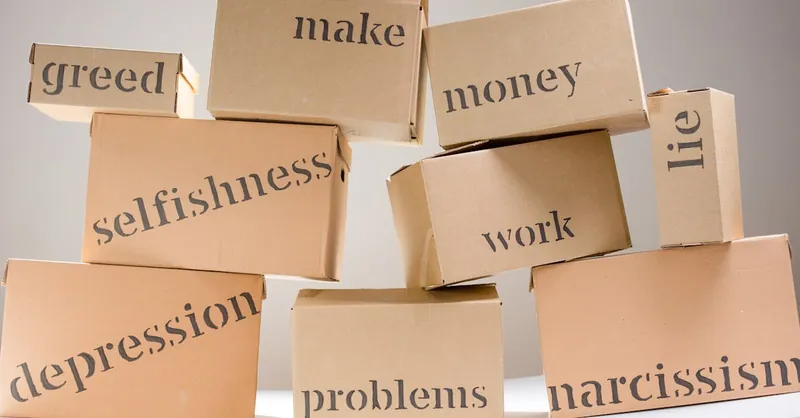
Image courtesy of Ron Lach
Social Justice and Karen Encounters – How These Videos Intersect with Issues of Race, Privilege, and Inequality
Viral Karen videos often go beyond mere displays of entitlement to intersect deeply with critical social justice issues, particularly those involving race, privilege, and systemic inequality. Many Karen encounters spotlight how racial bias and socio-economic power imbalances enable and embolden such behavior, making these videos powerful case studies in contemporary discussions about discrimination and privilege.
The Role of Race and Privilege in Karen Behaviors
At the heart of many viral Karen videos lies racialized entitlement—situations where predominantly white individuals leverage societal privilege to assert dominance or deny service to marginalized groups. This behavior is not simply an expression of rudeness but reflects a broader dynamic where white privilege operates as a tool to enforce social hierarchies. Examples include:
- Calling authorities on people of color for benign behavior, weaponizing racial stereotypes to intimidate or exclude.
- Refusing to comply with public health measures (like mask mandates) while demanding special accommodations, often framed through a narrative of personal freedom unchecked by broader community responsibility.
- Using the “speak to the manager” trope as a mechanism to silence workers, many of whom belong to vulnerable or marginalized groups, reinforcing workplace inequality.
These moments expose how systemic racism and entitlement are intertwined, revealing how privileges often go unchecked in everyday interactions under the guise of “normal” customer complaints or personal grievances.
Inequality Exposed Through Viral Video Clashes
Beyond racial dimensions, Karen encounters illuminate other axes of inequality, such as class and ability. Viral clips frequently underscore how entitlement conflicts with:
- Economic disparities, as Karens often wield economic power to demand service or deference.
- Disability discrimination, with some Karens denying accommodations or invalidating the legitimacy of others’ needs.
- Job insecurity, since frontline service workers—disproportionately from marginalized communities—bear the brunt of these public spats.
Given their high visibility, these videos serve as real-time documentation of social injustice, provoking public discourse about how entitlement intersects with systemic unfairness. They force viewers to confront uncomfortable truths about the ways social privilege shapes access, respect, and accountability in everyday life. By critically analyzing these viral moments, we can better understand how to dismantle the implicit power structures that allow entitlement-driven injustices to flourish and persist unchecked.
In essence, viral Karen videos do much more than entertain or provoke outrage—they expose fragmented social realities where privilege and prejudice collide, offering an urgent call to social awareness and change.
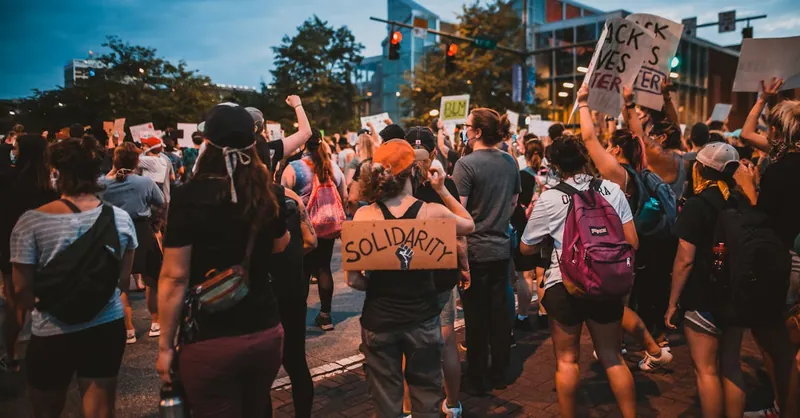
Image courtesy of Kelly
Breaking Down Notable Viral Karen Videos – Case Studies and Detailed Analysis
To truly understand the impact and implications of viral Karen videos, it’s essential to examine specific case studies that exemplify the archetype’s entitlement and social disruption in real-world contexts. These videos go beyond viral fame; they serve as critical artifacts revealing the intersections of privilege, conflict, and systemic injustice in everyday interactions.
Case Study 1: The "Central Park Karen" Incident
One of the most widely recognized viral Karen moments was the Central Park confrontation, where a woman called the police on a Black birdwatcher, falsely accusing him of threatening behavior. This video highlights several key themes:
- Racialized entitlement: The Karen leveraged her white privilege to weaponize law enforcement against a person of color engaged in a harmless activity.
- Disproportionate escalation: Instead of addressing the situation calmly, she bypassed dialogue, immediately calling authorities and placing the birdwatcher at unnecessary risk.
- Public backlash and social reckoning: The viral spread sparked widespread condemnation, turning the incident into a touchstone for discussions about racial profiling and abuse of power.
Case Study 2: The Mask Mandate Refusal Meltdown
Another prominent video shows a Karen refusing to comply with a store’s mask mandate, leading to a loud, hostile confrontation with employees and customers. This clip illuminates:
- Resistance to social responsibility framed as an individual “right” or personal freedom, ignoring community health concerns.
- Weaponization of victimhood, with the Karen casting herself as oppressed by the rules rather than acknowledging the collective efforts to maintain safety.
- Impact on frontline workers, who bear the brunt of such entitlement, often facing verbal abuse without protection.
Why These Videos Matter Beyond the Screen
Each viral Karen video serves as a microcosm of larger societal tensions linked to entitlement, accountability, and inequality. They are important because:
- They document real-time instances of privilege wielded to maintain social hierarchies.
- They provide educational material for unmasking implicit biases and systemic issues embedded in casual encounters.
- They encourage a broader public dialogue on how to effectively challenge and hold entitled behavior accountable in ways that promote equity and respect.
By analyzing these videos closely, we reveal not only the performative nature of Karen outrage but also the deeper consequences for social justice, making these viral moments invaluable tools for cultural critique and reform.
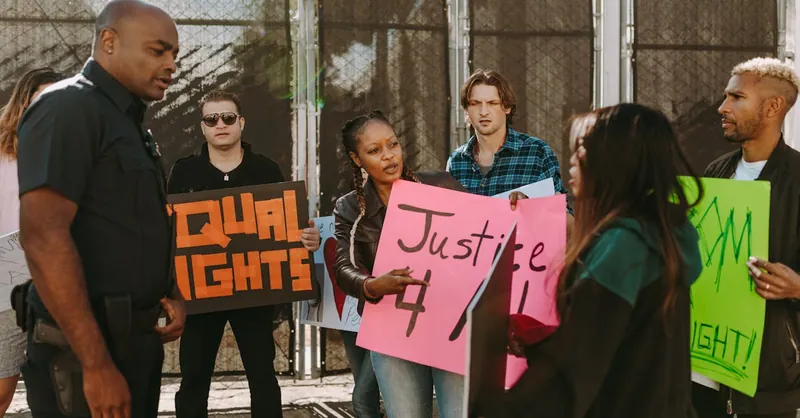
Image courtesy of RDNE Stock project
Public and Social Media Reactions – Examining Community Responses, Viral Discourse, and the Role of Outrage Culture
Viral Karen videos ignite fierce public and social media reactions that reveal much about contemporary digital culture and collective attitudes toward entitlement and injustice. The immediate and widespread sharing of these clips often triggers a complex mix of outrage, condemnation, humor, and solidarity—reflecting how communities process and contest displays of entitlement in real time. Social media platforms function as both amplifiers and battlegrounds, where viewers dissect each incident, debate the nuances of accountability, and call out systemic privilege exposed by these confrontations.
The Dynamics of Viral Outrage and Mobilization
Key to understanding the impact of Karen videos is recognizing how outrage culture fuels their virality and shapes public discourse. Outrage acts as a double-edged sword: while it mobilizes collective awareness and condemnation of entitlement-fueled injustice, it can also encourage sensationalism and performative activism that sometimes oversimplifies complex social dynamics. Common patterns in social media responses include:
- Rapid condemnation of the Karen’s behavior—often accompanied by viral hashtags and calls for accountability.
- Public support for victims or marginalized parties, highlighting broader systemic issues beyond individual incidents.
- Memes and satire that both critique and trivialize entitlement, increasing exposure but sometimes risking desensitization.
- Polarized debates, where defenders claim personal freedoms or question the legitimacy of “cancel culture,” underscoring cultural divides.
- Activism spurred by viral moments, leading to real-world consequences such as job losses or community organizing around social justice causes.
Community Responses as Agents of Social Accountability
Beyond outrage, viral Karen videos catalyze community-driven accountability mechanisms—from social shaming to institutional actions. These responses elevate public vigilance against entitlement and abuse of privilege, signaling a growing intolerance for behaviors that perpetuate inequality. Social media users often act as cultural watchdogs, documenting and amplifying instances of injustice that may otherwise remain invisible. This collective engagement plays a vital role in advancing social norms that prioritize respect, equity, and responsibility.
In sum, the social media ecosystem surrounding viral Karen videos underscores the power—and pitfalls—of digital public discourse in confronting entitlement culture. By critically engaging with these viral moments, communities worldwide not only highlight individual misconduct but also challenge the structural inequities that allow such behaviors to thrive.
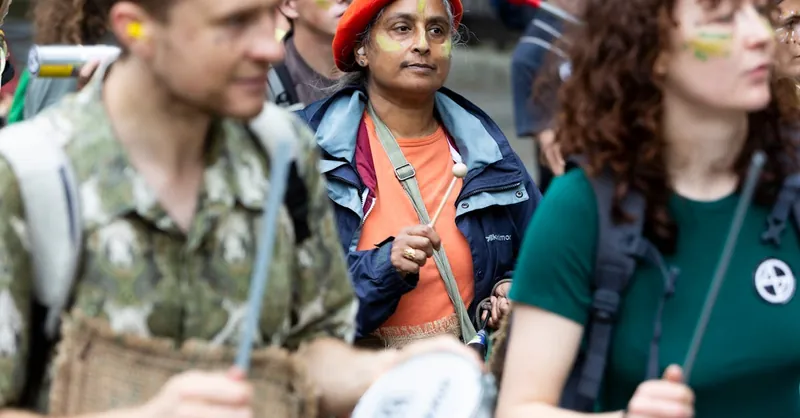
Image courtesy of Centre for Ageing Better
Impacts on Businesses and Public Spaces – How Karen Incidents Disrupt Environments and Influence Policies or Reputation
Karen incidents don’t just result in viral videos and online outrage—they have tangible ramifications for businesses and public spaces, often causing significant disruption and forcing institutions to rethink policies and customer relations. These confrontations typically erupt in places like retail stores, restaurants, medical offices, and public transportation, where the entitled behaviors of Karens create hostile atmospheres that affect employees, customers, and overall community wellbeing.
Disruption and Financial Consequences for Businesses
When a Karen demands special treatment, refuses to follow rules, or aggressively confronts staff, the immediate effect is disruption that can escalate quickly:
- Operational delays and safety risks: Prolonged confrontations tie up employee time, slow service, and sometimes necessitate security or police involvement, creating unsafe environments for both workers and patrons.
- Employee distress and turnover: Frontline workers frequently face verbal abuse and intimidation, contributing to workplace stress, reduced morale, and higher turnover rates, which in turn burden businesses with new hiring and training costs.
- Negative customer experience: Witnessing or experiencing a Karen meltdown can alienate other patrons, damaging customer loyalty and diminishing foot traffic.
- Reputational damage: Viral videos often link the incident to the business, sparking negative online reviews or calls for boycotts—even when the establishment is not at fault—thus impacting brand perception and revenue.
Shaping Policies and Public Space Management
In response to recurring Karen episodes, many businesses and public agencies are compelled to adapt their policies and staff training protocols to better manage and mitigate entitlement-driven conflicts:
- Clearer enforcement of rules and expectations, such as mask mandates or return policies, with enhanced signage and upfront communication to preempt disputes.
- Empowerment and support for employees through training in de-escalation techniques and established procedures for handling difficult customers without compromising safety.
- Zero-tolerance policies for harassment and abusive behavior, sometimes including bans or trespassing notices for repeat offenders.
- Incorporating technology solutions, like surveillance cameras or direct lines to security, to document incidents and expedite resolution.
Beyond businesses, public spaces—from parks to transit systems—face similar challenges as Karens leverage perceived entitlement to flout regulations or obstruct community access, prompting local governments to strengthen enforcement and public education efforts.
Broader Social Implications
Ultimately, the ripple effects of Karen incidents extend far beyond the immediate moments captured on video. As these disruptive behaviors increase, they not only burden institutions but also highlight systemic issues around entitlement and accountability in public life. The visible consequences on businesses and public spaces amplify the need for societal conversations about respect, equity, and community responsibility. Recognizing the impact these incidents have on everyday environments encourages more proactive measures to protect vulnerable populations, uphold fair policies, and foster inclusive public interactions that resist the chaos entitlement can unleash.

Image courtesy of Ketut Subiyanto
Legal and Ethical Considerations – When Entitlement Crosses into Harassment or Hate, and Societal Responses
The viral nature of Karen videos brings to light a critical intersection of legal boundaries and ethical responsibilities, particularly when entitlement escalates into harassment, discrimination, or hate crimes. While many Karen confrontations start as petty disputes or rude exchanges, the behavior often violates laws designed to protect individuals from abuse and discriminatory acts, especially when racial or marginalized groups are targeted. Understanding these legal and ethical frameworks is essential for comprehending both the consequences faced by offenders and the societal mechanisms that respond to such incidents.
When Karen Behavior Becomes Harassment or Hate
Entitlement in the form of persistent and aggressive demands can quickly cross into illegal harassment, especially when directed repeatedly at employees, customers, or individuals in public spaces. Key legal considerations include:
- Harassment and Disorderly Conduct: Verbal abuse, threats, or intimidation that disrupt public order or cause distress can be grounds for legal action or fines.
- Hate Speech and Discrimination: When entitlement is coupled with racial slurs, profiling, or targeted exclusion, these actions may violate civil rights laws and trigger police investigations or civil lawsuits.
- False Reporting: Several viral incidents involve Karens calling authorities with fabricated claims, which can be legally punishable under statutes against false reporting or misuse of emergency services.
Ethically, such behaviors violate fundamental principles of respect, dignity, and fairness, and erode the social trust necessary for community cohesion. The deliberate weaponization of privilege to silence or harm others runs counter to the values of equity and justice that many societies strive to uphold.
Societal and Institutional Responses
In response, society has increasingly adopted multifaceted strategies to address the legal and ethical breaches illustrated by Karen incidents. These include:
- Law Enforcement and Judicial Actions: Police may intervene in cases of harassment or disorderly conduct, while courts hold offenders accountable through charges or restraining orders.
- Corporate and Institutional Policies: Businesses often enforce zero-tolerance policies for abusive behavior, supporting employees through legal recourse or banning repeat offenders.
- Public Awareness and Education Campaigns: Activists and organizations raise awareness about the harms of entitlement-fueled discrimination, promoting empathy and inclusive conduct.
- Social Media as a Tool for Accountability: Viral exposure pressures individuals, employers, and communities to respond swiftly to unethical or illegal behavior, sometimes leading to social and professional consequences for offenders.
Ultimately, the legal and ethical examination of Karen behaviors underscores the need for clear boundaries between entitlement and harassment, reinforcing that no one is exempt from accountability. This evolving societal stance helps curb the normalization of disruptive privilege, fostering environments where respect and equity prevail over irrational entitlement and injustice.
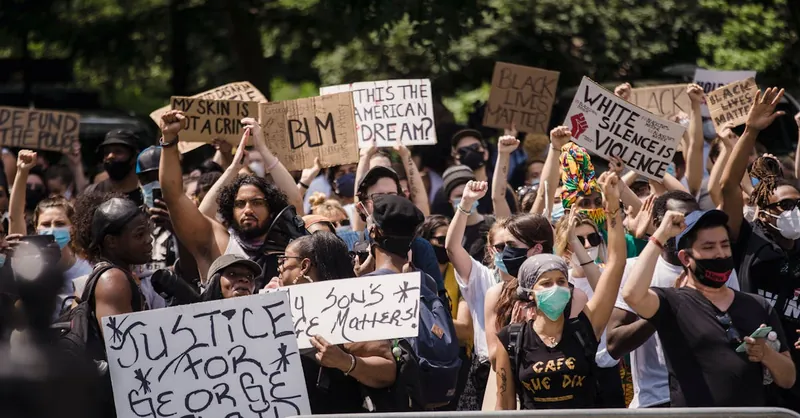
Image courtesy of Life Matters
Lessons for Conflict Management and Cultural Awareness – What We Can Learn About De-escalation and Empathy from These Viral Moments
Viral Karen videos, while often frustrating and aggravating, provide invaluable lessons in conflict management and cultural awareness that can help individuals and organizations better navigate tense social interactions. These incidents vividly illustrate how escalation thrives on misunderstandings, entitlement, and lack of empathy, making them cautionary tales for anyone committed to reducing conflict and fostering respectful communication.
Key Takeaways for Effective De-escalation
- Stay Calm and Centered: One of the clearest patterns in these viral confrontations is how quickly anger and defensiveness escalate the conflict. Remaining calm—both for bystanders and frontline workers—helps contain emotions and prevents a downward spiral.
- Listen Actively and Validate Concerns: Often, Karens feel unheard or disrespected, fueling their entitlement-driven outbursts. Acknowledging underlying concerns respectfully can reduce perceived threats and open space for dialogue.
- Set Clear Boundaries with Compassion: Enforcing rules and policies firmly yet empathetically limits the scope of conflict while maintaining respect for all parties involved.
- Avoid Power Struggles: Viral videos show that Karens frequently seek to assert dominance through confrontations. De-escalation requires sidestepping these power plays by focusing on problem-solving rather than winning arguments.
- Intervene Early Before Situations Escalate: Rapid response to warning signs—such as raised voices or aggressive language—can prevent viral incidents and ensure safety.
Cultivating Cultural Awareness and Empathy
Beyond conflict techniques, these videos underscore the crucial role of cultural competence and empathy in everyday interactions. Many Karen episodes stem from or exacerbate racial, social, and economic tensions, making it essential to:
- Recognize and challenge implicit biases that may influence assumptions about others’ behavior or intentions.
- Understand the historical and systemic contexts of privilege and marginalization, which shape how entitlement manifests and is perceived.
- Practice empathy by considering perspectives beyond your own, especially those of marginalized or service workers.
- Promote inclusive communication styles that prioritize respect over confrontation, fostering environments where diversity is valued rather than weaponized.
By integrating these lessons, individuals and institutions can not only reduce the frequency and impact of entitlement-fueled conflicts but also contribute to building communities defined by mutual respect, understanding, and social equity. Viral Karen videos serve as stark reminders of what happens when entitlement goes unchecked but also as educational tools illuminating paths toward better conflict resolution and cultural sensitivity in a diverse society.

Image courtesy of cottonbro studio
Future of the ‘Karen’ Phenomenon – Potential Changes in Public Perception and Social Accountability Moving Forward
As viral Karen videos continue to capture public attention, the future of the ‘Karen’ phenomenon is poised to evolve alongside shifting social norms and growing demands for accountability. Increasingly, society recognizes that these incidents are not just isolated outbursts of entitlement but symptomatic of broader power imbalances and systemic injustices. This awareness is driving changes in both public perception and mechanisms of social accountability, which may transform how entitlement is challenged and addressed in everyday life.
The Evolution of Public Perception
- From Mockery to Critical Discourse: While early viral Karen videos often sparked ridicule and meme culture, there is a growing shift toward serious critique of the entitlement and privilege underlying these behaviors. Viewers are becoming more attuned to the social justice implications, framing Karens not as merely comedic figures but as representatives of persistent societal inequalities.
- Increased Recognition of Intersectionality: Future discourse around Karens will likely incorporate a more nuanced understanding of how race, class, gender, and ableism intersect with entitlement, moving beyond simplistic caricatures. This deeper analysis helps expose how systemic issues perpetuate patterns of abusive privilege.
- Greater Sensitivity to Harm: Public sentiment is trending toward emphasizing the real-world consequences of Karen actions, particularly on marginalized groups and frontline workers. This shift encourages empathy rather than amusement, fostering conversations about respect, dignity, and the cost of unchecked entitlement.
Strengthening Social Accountability Mechanisms
- Empowered Bystander Culture: Digital literacy and social responsibility are empowering more individuals to document, speak out against, and intervene in entitlement-driven conflicts safely and effectively. The normalization of calling out Karen behavior contributes to enhanced social checks and balances.
- Institutional and Policy Reforms: Businesses, local governments, and workplaces are increasingly adopting rigorous policies and training programs focused on preventing entitlement-related disruptions. This includes zero-tolerance policies, stronger enforcement of anti-harassment laws, and clear consequences for discriminatory conduct.
- Amplification of Marginalized Voices: The rise of platforms and movements advocating for racial and social equity ensures that the voices hurt by entitlement behaviors are prioritized in public conversations, influencing cultural standards and shaping effective interventions.
Looking Ahead: From Viral Outrage to Lasting Change
The ongoing visibility of Karen incidents acts as a catalyst for transforming outrage into meaningful social progress. As collective understanding deepens, the phenomenon may serve less as a source of fleeting entertainment and more as an enduring reminder of the work needed to dismantle entitlement-driven injustice. By fostering sustained dialogue, accountability, and empathy, society can move toward reducing entitlement’s harmful impact and promoting equitable interactions for all.
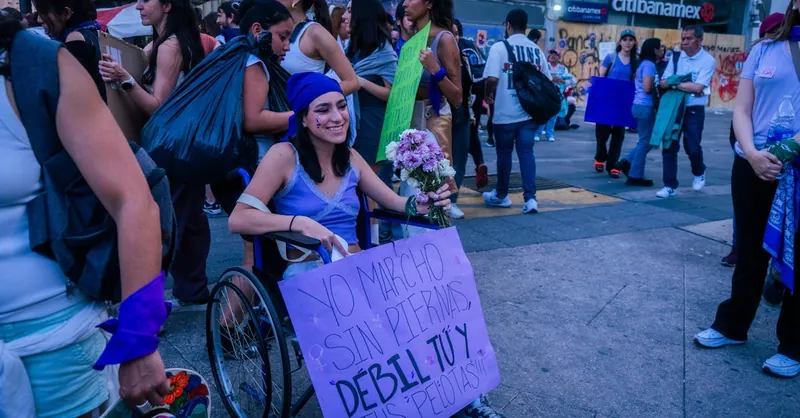
Image courtesy of Sina Rosas
